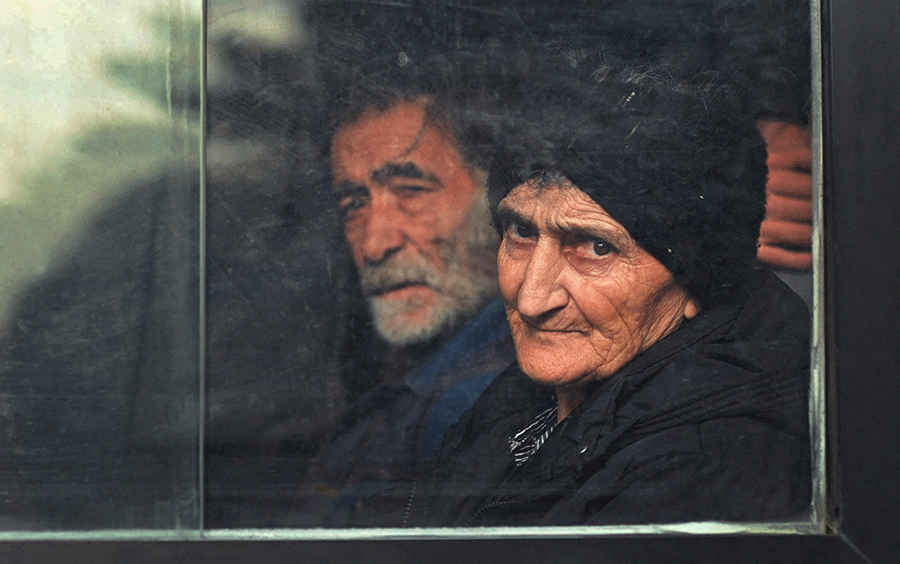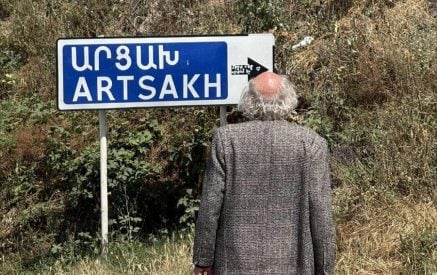Lemkin Institute for Genocide Prevention
March 27, 2024
It has now been six months since the Artsakh Genocide. For half a year, the indigenous Armenian population of Artsakh (Nagorno-Karabakh) has grappled with the harsh reality of displacement amid global apathy and unpredictability. They live in harsh conditions in Armenia, international aid has been slow and meager, and many are migrating to Russia and other countries far away from their homeland.
The ancestral homeland of the Artsakh Armenians became a battleground in 2020 following Azerbaijan’s military aggression against the enclave. Since then, Azerbaijan has launched repeated aggressions against the territory as well as against the Republic of Armenia. Azerbaijan also imposed a devastating 10-month blockade that stripped the region of its basic necessities from December 2022 through September 2023, rendering survival a daily struggle. A final invasion on September 19, 2023 resulted in the terrorization and flight of virtually the entire population of 120,000 Artsakh Armenians. All of these things were done in violation of international law as well as of the November 9, 2023 Tripartite Statement that ended the 44-Day-War.
Compounding the predicament of refugees from Artsakh is the glaring absence of international recognition of what happened to Artsakh Armenians as genocide and the lack of condemnation of Azerbaijan for its genocidal intentions. This silence perpetuates a sense of abandonment among those who have lost loved ones and homes. Under the shadow of global interests, these displaced individuals navigate a landscape fraught with survival guilt and the enduring trauma of genocide.
Negotiating the uncertainty of their current situation, Artsakh refugees bear witness to systematic cultural genocide of Artsakh, as Armenian cultural landmarks, historical and religious sites, and cemeteries are destroyed by Azerbaijani forces. Azerbaijani soldiers have released videos on social media of themselves ransacking and mocking peoples’ homes and possessions. In the hands of Azerbaijan, the traces of the 4000-year-old Armenian heritage and identity in Artsakh are steadily being obliterated, while the world continues to turn a blind eye. Given the circumstances, it is necessary for the international community to take proactive measures to ensure that the rights of Artsakh Armenians are upheld. The international community’s failure to condemn Azerbaijan’s genocidal intentions has only made this work more difficult.
Read also
Failing to acknowledge the Artsakh genocide and refraining from holding Azerbaijan accountable for its atrocities not only neglects the responsibility to safeguard and facilitate the safe return of Artsakh Armenians, but also sets a dangerous precedent that could lead to the recurrence of similar tragedies in the South Caucasus as well as further afield. By turning a blind eye to such atrocities, we risk perpetuating historical injustices and potentially facing similar tragedies within other Armenian communities, like those in Syunik or Tavush. Thus, advocating for recognition, accountability, and protection is crucial not only for justice in the present but also in the future, and it helps ensure the protection of all vulnerable populations worldwide. Only through concerted efforts to uphold human rights and international norms can we effectively confront and prevent genocide.


























































